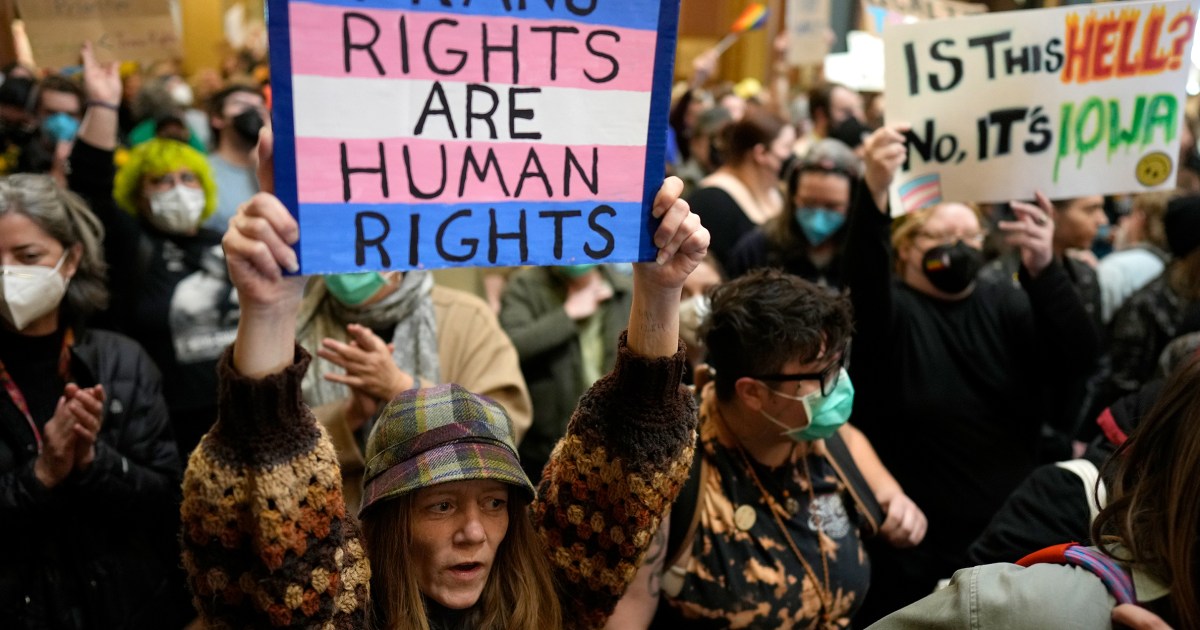Iowa Becomes First State to Remove Gender Identity Protections Amid Protests
Iowa lawmakers have approved a bill eliminating gender identity protections from the civil rights code, facing heavy protests from LGBTQ+ advocates.
Subscribe to unlock this story
We really don't like cutting you off, but you've reached your monthly limit. At just $5/month, subscriptions are how we keep this project going. Start your free 7-day trial today!
Get StartedHave an account? Sign in
Overview
In a historic move, Iowa lawmakers have approved legislation to remove gender identity protections from the state’s civil rights code despite significant backlash from LGBTQ+ advocates. Protests erupted at the state Capitol as the legislation passed along party lines, with opponents arguing that it could lead to increased discrimination against transgender individuals. Supporters of the bill claim it preserves traditional definitions of gender. The governor's decision on whether to sign the bill is pending, with the potential for it to take effect July 1. This marks the first instance of a U.S. state retracting such protections.
Report issue

Read both sides in 5 minutes each day
Analysis
- Iowa becomes the first state to approve legislation removing gender identity protections from civil rights codes, despite significant public opposition and protests.
- The bill aims to explicitly define gender and undermine existing nondiscrimination protections, reflecting a national trend among Republican-led legislatures to restrict transgender rights.
- Supporters argue it is essential to delineate biological sex from gender identity to protect spaces designated for women, while critics claim it stigmatizes and further marginalizes transgender individuals.
Articles (3)
Center (2)
FAQ
The bill removes gender identity from the Iowa Civil Rights Act, which previously protected against discrimination in areas such as housing, employment, and public accommodations.
Supporters argue that the bill is necessary to prevent other state laws targeting transgender Iowans from being struck down by courts and to keep women and girls from encountering transgender women in spaces like bathrooms or changing rooms.
LGBTQ+ advocates and the public have responded with significant protests at the Iowa Capitol, expressing concerns that the bill could lead to increased discrimination against transgender individuals.
The bill has received final legislative approval and is now awaiting the governor's signature. If signed, it could take effect as early as July 1.
History
- This story does not have any previous versions.


